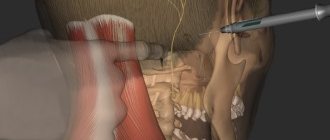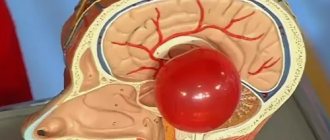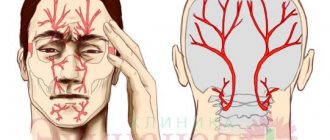- Causes of jaw inflammation
- What to do if the lower jaw is inflamed
- Diagnosis and treatment of jaw inflammation at the dentist
- Features of treatment for older patients
Inflammatory diseases are very common and are presented in all their diversity, from clinical manifestations to localization. Differential diagnosis is not always easy, especially if there are no specific signs. Often a dentist finds himself in this situation when a patient comes to him with inflammation under the jaw on the neck. In this case, it is very important to make a correct diagnosis and prescribe effective treatment.
Causes of jaw inflammation
The lower jaw and the area under it have a rather complex anatomical structure. Muscles, lymphatic and blood vessels, bone structures, etc. are concentrated in this zone. Also, the temporomandibular joint or other anatomical zones may be involved in the inflammatory process, from which the lesion spreads to the neck area. Common causes of inflammation of the jaw are:
- Tooth root cyst.
- Osteitis.
- Inflammation of the lymph nodes.
- Tumors of blood vessels and soft tissues of the neck.
- Traumatic injuries.
- Inflammation of the middle ear.
- Gingivitis, periodontitis, periodontal disease, etc.
Given such a variety of causes, the approach to diagnosis and treatment must be individualized. Due to his ignorance, the patient may choose the wrong doctor and waste his time. In situations where something is inflamed under the jaw on the right or left and at the same time a tooth or temporomandibular joint hurts, you need to consult a dentist. If the pain is localized in the ear area, then you need to visit an ENT specialist.
Diagnostics
Pain when opening the mouth requires, first of all, diagnosis; only an experienced doctor can make a correct diagnosis. There may be several reasons for this pathology, and the doctor’s task is to correctly diagnose the disease, since the treatment method will depend on this. During the consultation, the doctor examines the patient and finds out, the patient’s posture is also assessed, and how difficult the functions of swallowing, chewing and breathing are.
During the examination, the doctor will also pay attention to the location of the pain, whether it manifests itself on one side or is bilateral. Based on the results, an additional examination will be prescribed: x-rays, manual functional analysis and other procedures.
An individual and comprehensive approach is the priority of the Orto-Artel clinic. Therefore, to establish the root cause of the problem and its further solution, consultations with specialists such as:
- osteopath;
- neurologist;
- kinesiologist;
- psychologist.
The joint efforts of dentists and general specialists will make it possible to make the correct diagnosis.
If your jaw hurts when chewing or opening your mouth, then in most cases, the pain is a sign of inflammation. Therefore, often, when ear pain or tinnitus is detected, it is associated with purely “ear” problems. And with pain localized in the area of the temporomandibular joint, doctors who do not have adequate experience in diagnosing and treating TMJ dysfunctions usually make a standard diagnosis - “arthritis of the temporomandibular joint.”
The diagnosis of arthritis in medicine means inflammation of the joint, but this formulation does not include information about the specific causes of such inflammation. Therefore, making such a diagnosis is a very general formulation. It's a very general diagnosis. Non-binding. Does not reflect the root cause of inflammation. In fact, it is only a statement of the fact of inflammation in the joint.
But the causes of this inflammation can be very different, and accordingly, treatment, depending on the causes of inflammation, will differ significantly in different patients, even those who have common symptoms - pain in the jaw joint when opening the mouth. Or ear pain. Inflammation is the body's normal response to injury. And injury can be caused by various factors.
Diagnostics is the first and key step in treating pain in the jaw when opening the mouth. Do you want to know why it’s impossible to do without diagnostics?
In the case of joints, most often the injury will be mechanical. It occurs when the bones that form a given joint (in particular the head of the mandibular condyle) exceed their normal range of mobility. And they overstretch the joint capsule, ligaments and muscles associated with this joint. Every person has encountered this at least once in their life. Because this process has a well-known name - joint dislocation.
The dislocation may be acute. This is when it happens sharply and suddenly. In the case of the temporomandibular joint - with sudden opening of the mouth (for example, when yawning). Or due to a blow to the lower jaw area.
The dislocation can be chronic. This is when the bones that form a joint regularly (constantly, for a long time) exceed the amount of their normal mobility. In the case of TMJ, this happens when the bite is incorrect. Then each closure of the teeth will direct the lower jaw into the “wrong” position. And it is chronic injury that is more dangerous. Because, unlike an acute injury, a gradual stretching of the capsule and ligaments of the joint occurs, which camouflages (hides) the painful manifestations of the problem. After all, pain will occur in the later stages, when the process has already gone quite far, which often leads to untimely (belated) seeking medical help. Chronic injury is the cause of 90% of all TMJ problems. And it refers to functional problems (dysfunctions). When the daily, seemingly normal functioning of this joint leads to its gradual wear and tear and, ultimately, destruction.
The generally accepted traditional allopathic approach to the treatment of TMJ pathology with a banal (simplified) diagnosis of arthritis, and the resulting treatment (all this anti-inflammatory therapy, using pills, physiotherapy and other “traditional” methods) is erroneous and ineffective, since it does not eliminate the root cause of the problem .
Treatment in installments
The Orto-Artel clinic offers installments for the entire process of treating any disease. Personal conditions are considered on an individual basis.
Find out more
or call 8 (495) 128-11-74
In addition, I would like to note that pain in the jaw when opening the mouth is not always associated with problems in the TMJ (just as pain in the ear or tinnitus is not always associated directly with “ear” problems). Therefore, to differentiate the cause of the problem, to determine the true source of pain, consultation and assistance from a qualified specialist who understands these subtleties is necessary.
What to do if the lower jaw is inflamed
First of all, it is important to identify the symptoms of the problem. One of the very first and most obvious is an increase in soft tissue volume.
This can be either a slight swelling or a very large tumor-like formation. Other symptoms may include:
- Increased body temperature.
- Redness of the skin.
- Painful sensations.
- Incomplete opening or closing of the jaw.
- Sensation of a foreign body in the throat.
- Difficulty chewing or swallowing.
- Hearing loss.
If the symptoms are confusing and it becomes unclear which doctor you need to see, you can make an appointment with a therapist who will conduct an initial examination, examine the complaints and issue a referral to the right specialist.
Prevention
The main preventive measure to prevent the manifestation of severe pain in the jaw is a timely visit to the doctor. If any minor deviations occur, you should immediately consult a specialist. Early identification of the cause of a pathology that begins to develop is the first step towards solving the problem.
The patient should already be alerted by the appearance of unpleasant sensations and discomfort in the form of:
- deterioration of jaw mobility;
- crunching while yawning or chewing food;
- pain when opening the mouth;
- noise or pain in the ears;
- frequent headaches;
- grinding or creaking of the jaw;
- painful sensations in the neck and back.
Such symptoms are a reason to undergo diagnostic measures and, after diagnosis, receive the necessary treatment.
Diagnosis and treatment of jaw inflammation at the dentist in Odintsovo
If inflammation of the jaw has developed due to diseases such as pulpitis, periodontitis, periodontitis, as well as as a result of injuries and damage to the temporomandibular joint, then the treatment will be carried out by a dentist. First, a specialist must establish an accurate diagnosis. To do this, he collects anamnesis, finds out complaints, and conducts a visual examination of the oral cavity. Additionally, an X-ray examination of the jaws, laboratory tests and other diagnostic tests may be prescribed, with the help of which it will be possible to obtain objective information about the condition of the patient’s dental system.
Treatment of inflammation in our clinic in Odintsovo is usually carried out using combined methods, which include:
- Conservative therapy. Typically, the dentist prescribes antibacterial, anti-inflammatory and painkillers.
- Surgery. It involves the removal of non-viable tissue, drainage of the inflammatory focus and, if necessary, other procedures that are aimed at eliminating the pathological area.
The duration and complexity of treatment largely depends on the degree of neglect of the process. The sooner a patient seeks medical help, the easier it will be to restore lost health.
Symptoms of TMJ arthritis
Depending on the cause of the disease and the nature of the inflammation, arthritis manifests itself with the following symptoms:
- sharp pain when moving the jaw. Increases in opening/closing of the mouth, strongly radiates to the temple, back of the head, tongue;
- when you try to open your mouth wider, the jaw moves to the side;
- inability to close teeth tightly;
- hearing loss, dizziness;
- crunching when moving the jaw.
If at least 2 signs are detected, we recommend that you do not wait for the consequences, but contact the dentist. Correct diagnosis ensures the necessary treatment and recovery in a short time. In the later stages, the dentist will not help. And treatment will cost much more.
If you have a problem similar to that described in this article, be sure to contact our specialists. Don't diagnose yourself!
Why you should call us now:
- We will answer all your questions in 3 minutes
- Free consultation
- The average work experience of doctors is 12 years
- Convenient location of clinics
Single contact phone number: +7
Make an appointment
Features of treatment for older patients
Among the common age-related changes in the lower jaw, changes in the content of water, organic and inorganic substances are noted, osteoporosis, atrophy and thinning of bone tissue are often detected. In addition, older patients often have concomitant diseases, such as diabetes. All of these factors can greatly limit treatment options. For example, if dentures are required, then in some situations the dentist may only offer removable dentures. Placing implants will be risky and ineffective.
Nevertheless, modern dental capabilities make it possible to find a way out of any, even the most difficult situation. A wide variety of materials and techniques can eliminate existing problems and significantly improve the patient’s quality of life.









